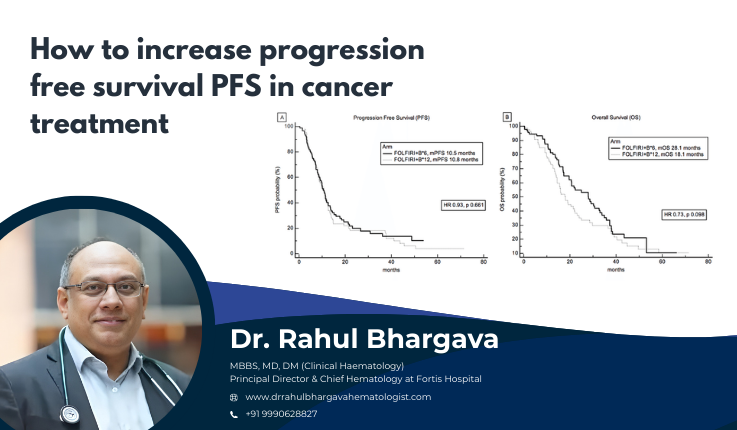6 Early Warning Signs of Leukemia You Should Never Ignore

Table of Contents
Leukemia, a type of blood cancer, often presents with subtle warning signs of leukemia that can be easily overlooked. Recognizing these early signs and symptoms of leukaemia is crucial for timely medical intervention and can make a significant difference in treatment outcomes. In this article, we will discuss six warning signs of leukemia that you should never ignore. If you or someone you know exhibits any of these symptoms, seeking medical advice is highly recommended.
What is Leukemia?
Leukemia is a type of cancer that affects the blood and bone marrow, where blood cells are produced. It leads to the overproduction of abnormal white blood cells, which crowd out normal cells. This disrupts the body's ability to fight infections, increasing vulnerability to illness and causing other health complications. Detecting leukemia early is critical for effective treatment and management, and being aware of the signs and symptoms of leukaemia can help catch it sooner.
Six Warning Signs of Leukemia
1. Persistent Fatigue and Weakness
One of the common warning signs of leukemia is chronic fatigue and weakness, even after minimal physical exertion. This occurs because leukemia reduces the number of healthy red blood cells, which carry oxygen throughout the body, leaving individuals feeling unusually tired and weak.
2. Frequent Infections and Fevers
A weakened immune system is a key sign and symptom of leukaemia. Leukemia impairs the body's ability to fight off infections, resulting in frequent or recurring infections, often accompanied by fevers. If infections become unusually frequent or difficult to overcome, it could be an indicator of a compromised immune system due to leukemia.
3. Unexplained Weight Loss
Unintentional and rapid weight loss is another important warning sign of leukemia. This happens because the body is working overtime to produce abnormal cells and fight infections. Sudden and unexplained weight loss, without changes in diet or exercise, should not be ignored as it could be a significant indicator of leukemia.
4. Easy Bruising and Bleeding
Among the signs and symptoms of leukaemia is a tendency to bruise or bleed easily. Leukemia affects platelet production, resulting in a condition called thrombocytopenia, which makes it easier to experience bruising or bleeding. Frequent nosebleeds, gum bleeding, or bruises that appear without obvious cause are common symptoms.
5. Swollen Lymph Nodes or Enlarged Spleen
Swelling in the lymph nodes or spleen is a warning sign of leukemia that should be taken seriously. Abnormal leukemia cells can accumulate in these areas, causing swelling that is often painless. This swelling may be noticeable in the neck, underarm, or groin. If you observe swelling in these areas without an apparent cause, it’s important to seek medical advice.
6. Bone or Joint Pain
Bone or joint pain is a common sign and symptom of leukaemia. Since leukemia affects the bone marrow, which produces blood cells, it can lead to pain in the bones or joints. This pain may be felt in the legs, arms, or spine and could be more noticeable during physical activity or at night.
When to Seek Medical Help ?
If you or someone you know is experiencing any of these warning signs of leukemia, especially if they persist or worsen over time, it’s crucial to seek medical advice promptly. Early diagnosis and treatment can significantly improve survival rates and quality of life for leukemia patients.
About Dr. Rahul Bhargava
Dr. Rahul Bhargava is a highly regarded hematologist with extensive expertise in leukemia and bone marrow transplantation. As the Principal Director and Chief of Hematology at Fortis Memorial Research Institute in Gurgaon, India, Dr. Bhargava has dedicated over 25 years to treating complex hematological conditions. His patient-centered approach and depth of experience have made him a trusted name in the field.
Frequently Asked Questions
The earliest warning signs of leukemia include persistent fatigue, frequent infections, easy bruising, night sweats, and unexplained weight loss—symptoms that should not be ignored.
If you experience ongoing fatigue, recurrent infections, bruising, or swollen lymph nodes, you should consult a doctor to rule out leukemia or other blood disorders.
Early detection of leukemia is possible through blood tests like a complete blood count (CBC), physical examinations, and sometimes bone marrow biopsy if symptoms suggest blood cancer.
Yes—leukemia symptoms in adults often include fatigue and infections, while leukemia symptoms in children may show more bone pain, bruising, or frequent fevers.
Early-stage leukemia treatment is often more effective, and many forms—especially acute leukemias—have high success rates when diagnosed and treated promptly.
